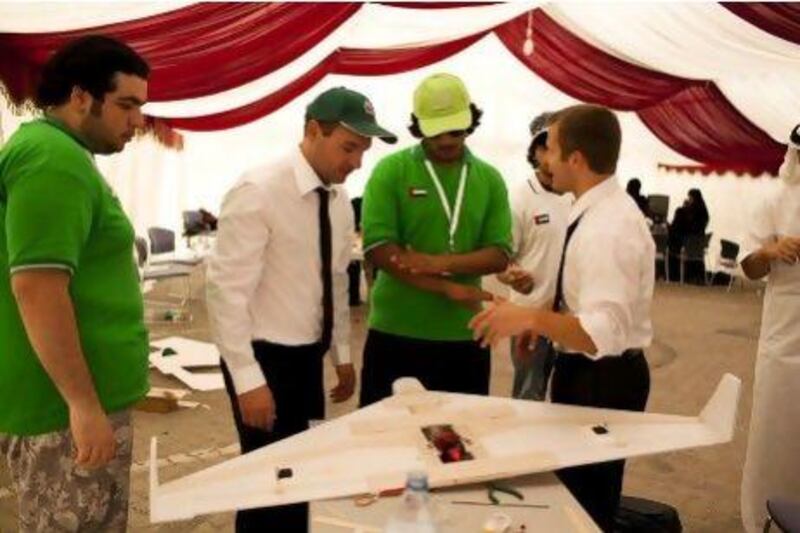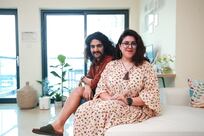Model aeroplanes made of foam board and powered by tiny electric motors whizzed above a sandy lot in Abu Dhabi this week in a contest that was about much more than fun and games.
The region's first known model-aeroplane competition for students put a spotlight on the role of engineering in training the country's future workforce as the UAE heads towards industrialisation.
"The UAE is growing and it needs huge numbers of engineers in the years to come," said Dr Tayeb Kamali, the vice chancellor of the Higher Colleges of Technology (HCT), under whose auspices the competition was held.
HCT, a nationwide university system, intends to expand the event country-wide next year and include competitions for unmanned systems on land and at sea.
The US aerospace and defence company Northrop Grumman, which has supplied the Emirates with military command and control systems, was the main sponsor. The UAE is such an important market for US technology that Northrop, which reported revenue of US$34.7 billion (Dh127.45bn) for last year, was represented by its chief executive, Wes Bush, who flew 11,300km to attend the event. Northrop hopes to win contracts with the UAE for unmanned helicopters and early-warning aircraft.
"Science, technology, engineering and mathematics are the foundations of every successful nation," Mr Bush told participants.
Some 70 students from HCT's men's and women's colleges participated in the competition as members of teams with names such as Snow Birds, Sigma-Six, Special Commands and Spirit of Al Ain. They were assisted by Northrop engineers who were seconded to the project over the past four months, advising on aircraft design and fabrication, and classic dilemmas in flight such as speed versus endurance. The top award went to the model aircraft with the best combination of the two.
Analysts said the event highlighted the effort by foreign aerospace companies to cultivate ties with the academic establishment as the UAE military leverages its purchasing power, directing its foreign suppliers to transfer expertise and technology into the Emirates.
"The vision of the UAE is creating a hub for industrial technologies, and this event is all about investing in manpower and adding a bit of fun to it at the same time," said Riad Kahwaji, the chief executive of the Institute for Near East and Gulf Military Analysis, which co-sponsored the event.
It is hoped that some of these students will pursue aerospace careers and help seed an industry being created in Al Ain, where already a plant is making aircraft parts for Airbus. With rapid industrialisation being implemented by the Abu Dhabi Government, the aerospace industry is competing for top domestic talent against other high-tech fields emerging locally such as nuclear energy, semiconductors, telecommunications and clean energy.
In November, a top executive at the US aerospace company Raytheon vowed he would offer a job in the company's local operation to any UAE national graduating from a domestic engineering programme.
"Raytheon and its partners in the UAE industry would hire every engineer that comes out of school," said Kevin Massengill, Raytheon's vice president for the Middle East and North Africa. Citing the difficulties in recruiting qualified local graduates, he referred to a local defence-related project that needed 150 Emirati engineers but could muster only seven.






